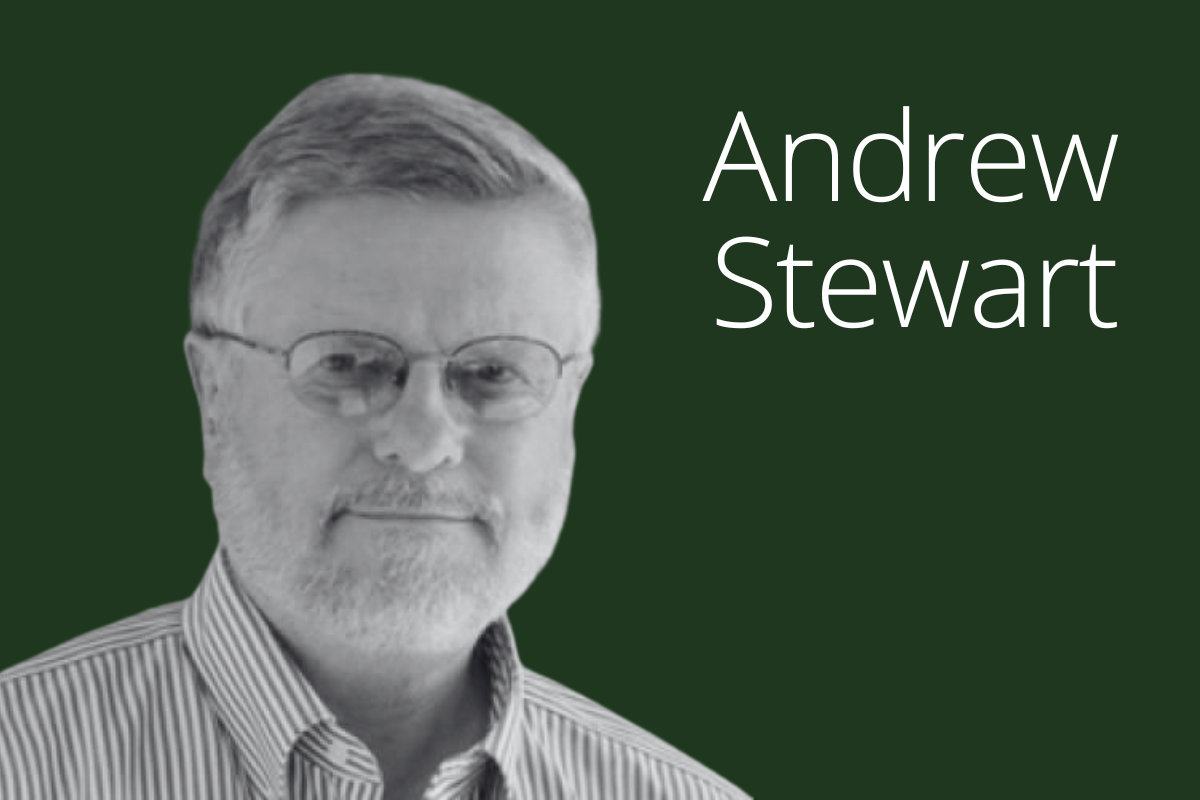 David Campbell Sim was born on 11 December 1957 in Melbourne’s inner north. His parents were working-class people with a great respect for educational advancement. Two of their four sons became professors and fellows of Learned Academies, David as a professor of religious studies and the other in the sciences. In the early 1980s, higher education was still fee-free across Australia and David grasped every opportunity that this offered. He studied Religious Studies at La Trobe University, gaining a Bachelor of Arts with Honours in 1980 and a Master of Arts in 1985. After being awarded a British Council Commonwealth Scholarship, David undertook doctoral studies on the gospel of Matthew at King’s College, London, under the supervision of Professor Graham Stanton, completing the degree in 1993. That thesis was the basis of his first book, Apocalyptic Eschatology in the Gospel of Matthew (Cambridge, 1996).
David Campbell Sim was born on 11 December 1957 in Melbourne’s inner north. His parents were working-class people with a great respect for educational advancement. Two of their four sons became professors and fellows of Learned Academies, David as a professor of religious studies and the other in the sciences. In the early 1980s, higher education was still fee-free across Australia and David grasped every opportunity that this offered. He studied Religious Studies at La Trobe University, gaining a Bachelor of Arts with Honours in 1980 and a Master of Arts in 1985. After being awarded a British Council Commonwealth Scholarship, David undertook doctoral studies on the gospel of Matthew at King’s College, London, under the supervision of Professor Graham Stanton, completing the degree in 1993. That thesis was the basis of his first book, Apocalyptic Eschatology in the Gospel of Matthew (Cambridge, 1996).
I first got to know David in 1994 when he took up a lectureship in New Testament studies at the Mitchelton campus of the newly formed Australian Catholic University. Our common history as part of what he termed, with conscious irony, the “Commonwealth scholars family” established a strong bond between us and showed me an example of an academic career forged with grit and determination. In 1999, he took the opportunity to return to his home state of Victoria and transferred to the new St Patrick’s campus of ACU in Fitzroy with his wife Robyn and young son Michael.
Professor Sim was a dedicated mentor of early career researchers. He served the Australian Catholic University in various administrative roles, including Associate Dean (Research) for the Faculty of Theology and Philosophy. In this role, Professor Sim also oversaw candidature for higher degrees by research and continued to supervise PhD students, including several from Aboriginal and Torres Strait Islander backgrounds. He was a founding member of the Centre for Early Christian Studies, under the directorship of Professor Pauline Allen FAHA. He held Visiting Professorships at the University of Pretoria, Republic of South Africa (1999) and at the Centre for Jewish-Christian Relations in Cambridge University (2003), and lectured widely in the United Kingdom and Europe.
In 2014, he was delighted to be chosen the keynote speaker for the Asia-Pacific Early Christian Studies Society conference at Toyo-Eiwa University, Yokohama Campus, Japan, and was an active promoter of patristic networks in Asia. In recent years, he was an affiliate researcher of the ACU’s Institute for Religion and Critical Enquiry in the program of Biblical and Early Christian Studies. He worked at ACU for 29 years, retiring only three months before his death on 9 September 2023. Work on a Festschrift in his honour had already begun.
Critical enquiry was a hallmark of Professor Sim’s academic life and earned him an international reputation as a leading scholar on the textual tradition of first-century Christianity, with a focus on Jewish-Christian relations, the value of the Matthean Gospel as a historical source, and its relationship to the canonical tradition. Many a fierce academic debate was conducted with his colleagues at the “smokers’ post” outside the main doors of his workplace. He was the author of three monographs, the editor of another six, and published over seventy articles and book chapters in some of the most respected venues in the field.
Much of his work focused on historical aspects of the Gospel of Matthew and Jewish and non-Jewish identity among the founders of the “Jesus movement”. His most recent collaborative project was a study of aspects of the composition history and technique of the Gospel of Matthew and its earliest reception history in mainstream Christianity.[1] At the same time, it aimed to throw light on questions of a broader character with regard to the composition history of the gospels, the strategies authors can use to create distinction, and the selection process that guided their reception history. In this landmark venture, he collaborated with two of the world’s leading New Testament scholars, Joseph Verheyden and Jens Schröter. Due to the discipline in which he excelled, Professor Sim was probably better known in academic circles of Europe and the United Kingdom than in Australia. He was an elected member of the Fellowship for Biblical Studies from 1990, and of the Society for Biblical Literature from 1994, as well as an elected member of the Studiorum Novi Testamenti Societas, the peak body for international New Testament research. As noted in his AHA citation of 2014, David Sim’s body of work is “recognised as making an important contribution to the task of reconstructing early Christian history in the first century C.E. from its beginnings in Jesus of Nazareth through to Paul and Paul’s communities, and the Gospel writers, particularly Matthew, but also Mark, recognised as one of Matthew’s sources.” The relationship between Matthew and Judaism has been the subject of debate for the past four decades, and Professor Sim was committed to demonstrating that the anonymous Gospel of Matthew came out of a Jewish context. Its author was best described as a Christian Jew. This was the thesis of his second monograph, The Gospel of Matthew and Christian Judaism: The History and Social Setting of the Matthean Community, Studies of the New Testament and Its World (Edinburgh, 1998).
Professor Sim had no confessional affiliations and did not eschew academic controversy. He was notoriously sceptical about the apostle Paul’s account of the foundation of the church of Jerusalem. His arguments generated strong reactions of dissent as well as support, but all acknowledged the careful, detailed research adduced as evidence of his theories.
His rigorous academic standards set a high bar for his postgraduate students, and he went on to co-publish with a former doctoral student, now senior lecturer at ACU, Dr Ian Elmer. With Elmer and Professor Oda Wischmeyer, Professor of New Testament at the University of Erlangen, Germany, he co-edited a volume of articles in English and German on the impact of Pauline theology on the Gospel according to Mark.[2] His edited volume on Matthew and Roman Imperialism (2005) signals another major field in which his expertise was recognised, namely the imperial context of emerging Christianity.[3]
Finally, his work on ancient Judaism and the gentiles or believers in early Christianity established his name as one of the leading theorists on the “parting of the ways” between Christianity and Judaism. His book with James McLaren, also at ACU, on attitudes to gentiles crossed the traditional disciplinary divide between studies of ancient Judaism and early Christian studies.[4] His willingness to collaborate across disciplinary divides was also evident in his co-edited volume with Professor Pauline Allen on ancient Jewish and Christian texts as crisis management literature.[5] This work brought together essays from the Centre for Early Christian Studies, whose major innovation was to bring together biblical and patristic studies under one scholarly roof, to the enrichment of both. Professor Sim was a pivotal figure in the success of this ACU research centre, which attracted many Australian Research Council Discovery Project grants and fellowships, and fostered international research collaborations between 2000 and 2016.
In spite of ill-health in recent years, Professor Sim was still energetically pursuing his research agenda, publishing his third monograph, There Will Be Weeping and Gnashing of Teeth: Essays on Matthew’s Apocalyptic Eschatology, in 2023 with De Gruyter press. The Gospel of Matthew has the strongest focus of all the gospels on eschatology or the End Times and the expected second coming of Jesus. It is therefore perhaps the best early Christian source for those considering eschatological questions from a religious perspective in the current, post-Covid era. Professor Sim’s work has made a significant contribution to our understanding of historical approaches to such questions two thousand years ago.
In 2014, Professor Sim was elected as a Fellow of the Australian Academy of the Humanities, which he regarded as the highlight of his research career. He was proud to be the first fellow of the newly minted section of Religion, previously a joint section of Philosophy and Religion. He was a spirited contributor to discussions in our section meetings and a generous colleague with a fine mind and a mischievous sense of humour. He remained an active member of the Academy until the end, in spite of limited mobility in his last years. As one close colleague remarked to me, “He leaves behind a huge legacy which will long outlive us all”. He will be greatly missed by friends, Academy fellows, and other colleagues alike. He is survived by his wife Robyn Antrim and their son Michael.
Professor Bronwen Neil FAHA.
Citations
[1] J. Verheyden, J. Schröter and D. C. Sim, eds. The Composition, Theology, and Early Reception of Matthew’s Gospel. Wissenschaftliche Untersuchungen zum Neuen Testament 477. Tübingen: Mohr Siebeck, 2022.
[2] D. C. Sim, O. Wischmeyer and I. J. Elmer, eds. Paul and Mark: Comparative Essays Part I. Two Authors at the Beginnings of Christianity. Beihefte zur Zeitschrift für die neutestamentliche Wissenschaft 198. Berlin: de Gruyter, 2014.
[3] J. Riches and D.C. Sim (eds), The Gospel of Matthew in Its Roman Imperial Context. Early Christianity in Context; London: T & T Clark, 2005.
[4] D. C. Sim and J. S. McLaren, eds. Attitudes to Gentiles in Ancient Judaism and Early Christianity. Library of New Testament Studies 499. London: Bloomsbury T & T Clark, 2013.
[5] D. C. Sim and P. Allen, eds. Ancient Jewish and Christian Texts as Crisis Management Literature. Library of New Testament Studies 445. London: Continuum, 2012.
Other key publications
‘The Gospel of Matthew and Galilee: An Evaluation of an Emerging Hypothesis’, Zeitschrift für di neutestamentliche Wissenschaft 107 (2016): 141-69.
‘Jews, Gentiles and Ethnic Identity in the Gospel of Matthew’, in Christians Shaping Identity from the Roman Empire to Byzantium, edited by G. D. Dunn and W. Mayer, 25-47. Leiden: Brill, 2015.
‘The Family of Jesus and the Disciples of Jesus in Paul and Mark: Taking Sides in the Early Church’s Factional Dispute’, in Paul and Mark: Comparative Essays Part I. Two Authors at the Beginnings of Christianity, edited by O. Wischmeyer, D. C. Sim and I. J. Elmer, 73-99. Beihefte zur Zeitschrift für die neutestamentliche Wissenschaft 198. Berlin: de Gruyter, 2014.
‘Is Matthew 28:16-20 the Summary of the Gospel?’, Hervormde Teologiese Studies 70 (2014): 1-7.
‘Attitudes to the Gentiles in the Gospel of Matthew’, in Attitudes to Gentiles in Ancient Judaism and Early Christianity, edited by D. C. Sim and J. S. McLaren, 173-90. Library of New Testament Studies 499. London: Bloomsbury T & T Clark, 2013.
‘Conflict in the Canon: The Pauline Literature and the Gospel of Matthew’, in Religious Conflict from Early Christianity to the Rise of Early Islam, edited by W. Mayer and B. Neil, 71-86. Arbeiten zur Kirchengeschichte 121. Berlin: de Gruyter, 2013.
‘Gentiles, God-Fearers and Proselytes’, in Attitudes to Gentiles in Ancient Judaism and Early Christianity, edited by D. C. Sim and J. S. McLaren, 9-27. Library of New Testament Studies 499. London: Bloomsbury T & T Clark, 2013.
Sim, D. C. and P. Allen, eds., Ancient Jewish and Christian Texts as Crisis Management Literature: Thematic Essays from the Centre for Early Christian Studies. Library of New Testament Studies 445. London: Continuum [now Bloomsbury T & T Clark], 2012.
‘Matthew’s Use of Mark: Did Matthew Intend to Supplement or to Replace his Primary Source?’ New Testament Studies 57 (2011), 176-192.
‘Polemical Strategies in the Gospel of Matthew’, in Polemik in der fruehchristlichen Literatur: Texte und Kontexte, edited by O. Wischmeyer and L. Scornaienchi, 491-515. Beihefte zur Zeitschrift für die neutestamentliche Wissenschaft 170. Berlin: de Gruyter, 2011.‘Matthew and the Synoptic Problem’, in New Studies in the Synoptic Problem: Oxford Conference, April 2008, edited by P. Foster, A. Gregory, J. Kloppenborg, and J. Verheyden, 187-208. Essays in Honour of Christopher M. Tuckett. Bibliotheca Ephemeridum Theologicarum Lovaniensium 239. Leuven: Peeters, 2011.
‘Matthew: The Current State of Research’, in Mark and Matthew: Texts and Contexts, edited by E.-M. Becker and A. Runesson, 33-51. Volume I, Tübingen: Mohr Siebeck, 2011.
‘Does the Gospel of Matthew Presuppose a Canon of Scriptures?’ in Religiose und literorische Kanonisierungs – und Dekanonisierungsprozesse als hermeneutisches Problem, edited by E.-M. Becker and S. Scholz, 409-428. Berlin: de Gruyter, 2011.
Sim, D. C. and B. Repschinski (eds), Matthew and His Christian Contemporaries. Library of New Testament Studies 333. London: Continuum, 2008.



